Photo: Mike Marsland/WireImage.com
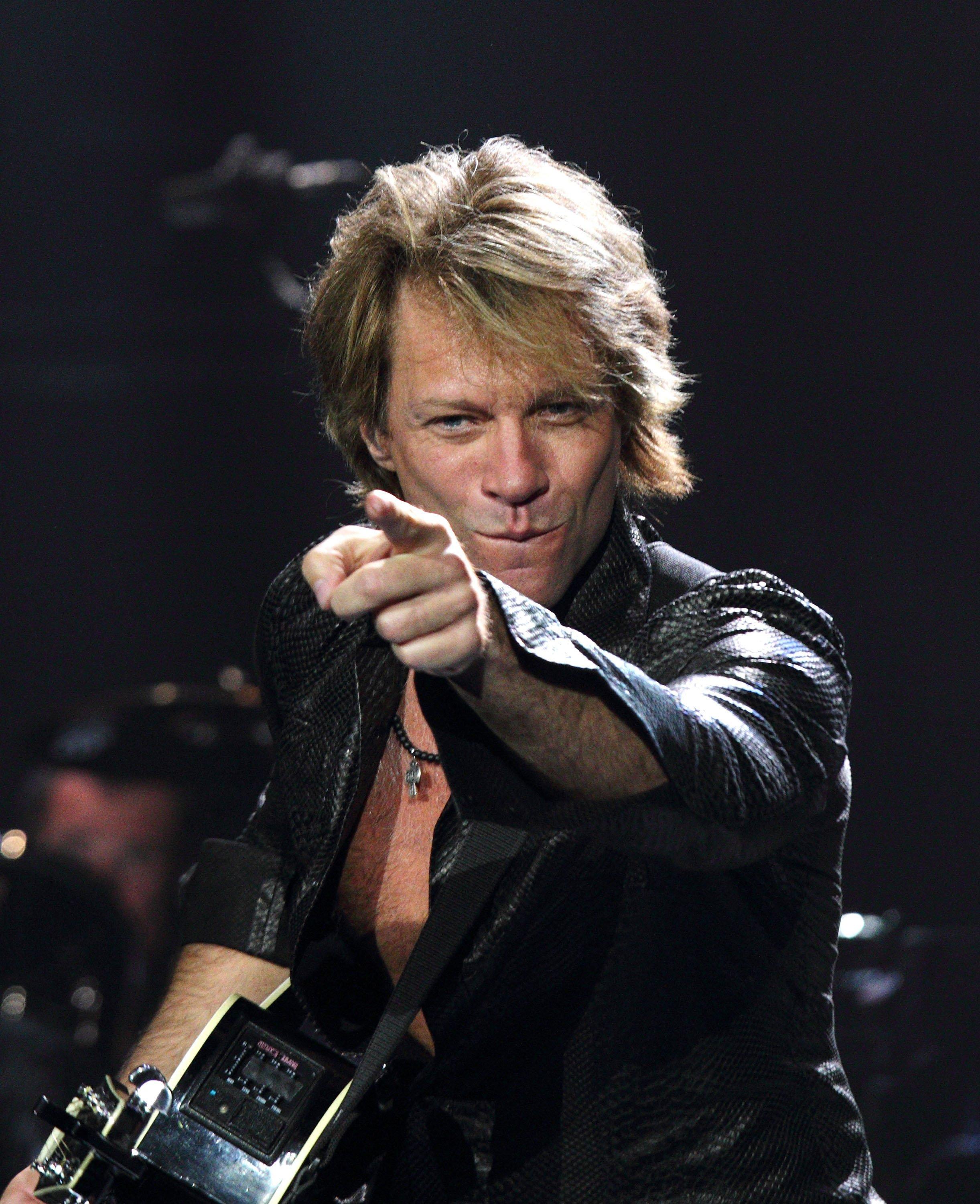
news
The Week In Music: Jon Bon Jovi's Labor Day Bash
Cops crash Bon Jovi's Labor Day blowout
Jon Bon Jovi and friends got a little too "Wild In The Streets" this past weekend during the singer's Labor Day end-of-summer blowout at his pad in the Hamptons, N.Y. Jack Nicholson was reported to be among the guest list. In a scene straight out of one of his rock concerts, the party culminated in a lavish fireworks display set to a backdrop of Bon Jovi classics, which drew a visit from local police due to neighborhood noise complaints. But the master frontman proved his negotiating skills in persuading the officers to allow him one more song and even invited them inside to watch. Fresh from the party, Bon Jovi unveiled the artwork for his band's new best-of compilation, simply titled Greatest Hits, due Nov. 9. How about a re-record of "Who Says You Can't Go Home" as "Who Says You Can't Party At Home"?
Get your popcorn ready. The 2010 MTV Video Music Awards will air live from Los Angeles on Sept. 12. The show will be hosted by Chelsea Handler, who recently revealed what viewers can expect this year, and artists scheduled to perform include TWIM favorite Justin Bieber, Mary J. Blige, Drake, Eminem, Bruno Mars, Usher, and Kanye West. Of course, we'll be making out our fashion report cards in next week's installment of Snapshot. On that note, take a look at Billboard's 50 most outrageous VMA outfits to get in that fashion state of mind.
One of The Recording Academy's favorite founding fathers, Quincy Jones, will be celebrated with a new tribute album due Nov. 9. Q: Soul Bossa Nostra will feature tracks closely associated with the man they call "Q" from artists such as Akon (the Brothers Johnson's "Strawberry Letter 23"), Ludacris and Naturally 7 ("Soul Bossa Nova") and, marking a gradual return to her career, Amy Winehouse with Mark Ronson (Lesley Gore's "It's My Party"). Said Jones of the Winehouse contribution: "I am thrilled that she and Mark wanted to be a part of this album and I absolutely love what they did to make the song their own."
Would you still love him if he was well past 64? John Lennon would have turned 70 on Oct. 9, and according to USA Today, a number of events are on tap to celebrate the big day. Among them, several CD projects, including eight Lennon solo album reissues as well as an 11-CD box set; a biopic, Nowhere Boy, examining Lennon's early life, set to open on Oct. 8; plans by widow Yoko Ono to stage We Are Plastic Ono Band tribute shows, featuring Lady Gaga, Iggy Pop and others, on Oct. 1–2 in Los Angeles; and don't forget the GRAMMY Museum's new exhibit, John Lennon, Songwriter, which will run from October through March 2011. It's sort of like Christmas in October, though certainly Lennon would never compare himself to Jesus.
In more Beatles news, Sir Paul McCartney was announced as one of the honorees for the 2010 Kennedy Center Honors. Additionally, The 4 Complete Ed Sullivan Shows Starring The Beatles was released on Sept. 7. The DVD set includes 20 songs as featured on the Fab Four's appearances on "The Ed Sullivan Show" in 1964 and 1965. The first night, Feb. 9, 1964, is considered to be a landmark in U.S. television history with an estimated 73 million Americans having tuned in.
Is Carrie Underwood contemplating a career change? Following a recent screening of the upcoming movie Soul Surfer, Underwood says she was pleasantly surprised by her feature film debut. "I really liked how everything turned out, including myself," said Underwood. "I was really expecting the worst from myself, and I really surprised myself." The GRAMMY winner plays a youth counselor in the film, which is based on the story of surfer Bethany Hamilton, who lost her arm in a shark attack. "It's definitely an uplifting movie," assured Underwood. The film is slated for release in 2011.
What's all the Twitter chatter about out there? Check out the TWIM Twittertable: keshasuxx: What the hell do I wear to the vmas?; kanyewest: How much is a s**t load exactly? I'm assuming it's more than a piss load; justinbieber: back from playing some hoop ...not the best outing for the squad. @scooterbraun & @kennyhamilton u guys are starting to get old on me. lol; genesimmons: I hate twitting; katyperry: We're all on the bus having a drag queen loca off to ur new song "Only Girl" @rihanna! I'm winning so far. That song is #1, bet a kitten.
Katy Perry's "Teenage Dream" holds the No. 1 spot on the Billboard Hot 100, while Bruno Mars' "Just The Way You Are" is No. 1 on the iTunes singles chart.
Any news we've missed? Comment below.
For the latest GRAMMY news, visit us on Facebook, Twitter and YouTube.
.jpg)
Photo: Yoko Ono
list
5 Reasons John Lennon's 'Mind Games' Is Worth Another Shot
John Lennon's 1973 solo album 'Mind Games' never quite got its flowers, aside from its hit title track. A spectacular 2024 remix and expansion is bound to amend its so-so reputation.
As the train of Beatles remixes and expansions — solo or otherwise — chugs along, a fair question might come to mind: why John Lennon's Mind Games, and why now?
When you consider some agreed-upon classics — George Harrison's Living in the Material World, Ringo Starr's Ringo — it might seem like it skipped the line. Historically, fans and critics have rarely made much of Mind Games, mostly viewing it as an album-length shell for its totemic title track.
The 2020 best-of Lennon compilation Gimme Some Truth: The Ultimate Mixes featured "Mind Games," "Out the Blue," and "I Know (I Know)," which is about right — even in fanatical Lennon circles, few other Mind Games tracks get much shine. It's hard to imagine anyone reaching for it instead of Plastic Ono Band, or Imagine, or even the controversial, semi-outrageous Some Time in New York City.
Granted, these largely aren't A-tier Lennon songs — but still, the album's tepid reputation has little to do with the material. The original Mind Games mix is, to put it charitably, muddy — partly due to Lennon's insecurity about his voice, partly just due to that era of recordmaking.
The fourth-best Picasso is obviously still worth viewing. But not with an inch of grime on your glasses.
The Standard Deluxe Edition. Photo courtesy of Universal Music Group
That's all changed with Mind Games: The Ultimate Collection — a fairly gobsmacking makeover of the original album, out July 12. Turns out giving it this treatment was an excellent, long-overdue idea — and producer Sean Ono Lennon, remixers Rob Stevens, Sam Gannon and Paul Hicks were the best men for the job. Outtakes and deconstructed "Elemental" and "Elements" mixes round out the boxed set.
It's not that Mind Games: The Ultimate Collection reveals some sort of masterpiece. The album's still uneven; it was bashed out at New York's Record Plant in a week, and it shows. But that's been revealed to not be its downfall, but its intrinsic charm. As you sift through the expanded collection, consider these reasons you should give Mind Games another shot.
The Songs Are Better Than You Remember
Will deep cuts like "Intuition" or "Meat City" necessarily make your summer playlist? Your mileage may vary. However, a solid handful of songs you may have written off due to murky sonics are excellent Lennon.
With a proper mix, "Aisumasen (I'm Sorry)" absolutely soars — it's Lennon's slow-burning, Smokey Robinson-style mea culpa to Yoko Ono. "Bring On the Lucie (Freda Peeple)" has a rickety, communal "Give Peace a Chance" energy — and in some ways, it's a stronger song than that pacifist classic.
And on side 2, the mellow, ruminative "I Know (I Know)" and "You Are Here" sparkle — especially the almost Mazzy Star-like latter tune, with pedal steel guitarist "Sneaky" Pete Kleinow (of Flying Burrito Brothers fame) providing abundant atmosphere.
And, of course, the agreed-upon cuts are even better: "Mind Games" sounds more celestial than ever. And the gorgeous, cathartic "Out the Blue" — led by David Spinozza's classical-style playing, with his old pal Paul McCartney rubbing off on the melody — could and should lead any best-of list.
The Performances Are Killer
Part of the fun of Mind Games: The Ultimate Collection is realizing how great its performances are. They're not simply studio wrapping paper; they capture 1970s New York's finest session cats at full tilt.
Those were: Kleinow, Spinozza, keyboardist Ken Ascher, bassist Gordon Edwards, drummer Jim Keltner (sometimes along with Rick Marotta), saxophonist Michael Brecker, and backing vocalists Something Different.
All are blue-chip; the hand-in-glove rhythm section of Edwards and Keltner is especially captivating. (Just listen to Edwards' spectacular use of silence, as he funkily weaves through that title track.)
The hardcover book included in Mind Games: The Ultimate Collection is replete with the musicians' fly-on-the-wall stories from that week at the Record Plant.
"You can hear how much we're all enjoying playing together in those mixes," Keltner says in the book, praising Spinozza and Gordon. "If you're hearing John Lennon's voice in your headphones and the great Kenny Ascher playing John's chords on the keys, there's just no question of where you're going and how you're going to get there."
It Captures A Fascinating Moment In Time
"Mind Games to me was like an interim record between being a manic political lunatic to back to being a musician again," Lennon stated, according to the book. "It's a political album or an introspective album. Someone told me it was like Imagine with balls, which I liked a lot."
This creative transition reflects the upheaval in Lennon's life at the time. He no longer had Phil Spector to produce; Mind Games was his first self-production. He was struggling to stay in the country, while Nixon wanted him and his message firmly out.
Plus, Lennon recorded it a few months before his 18-month separation from Ono began — the mythologized "Lost Weekend" that was actually a creatively flourishing time. All of this gives the exhaustive Mind Games: The Ultimate Collection historical weight, on top of listening pleasure.
"[It's important to] get as complete a revealing of it as possible," Stevens, who handled the Raw Studio Mixes, tells GRAMMY.com. "Because nobody's going to be able to do it in 30 years."
John Lennon and Yoko Ono in Central Park, 1973. Photo: Bob Gruen
Moments Of Inspired Weirdness Abound
Four seconds of silence titled the "Nutopian International Anthem." A messy slab of blues rock with refrains of "Fingerlickin', chicken-pickin'" and "Chickin-suckin', mother-truckin'." The country-fried "Tight A$," basically one long double entendre.
To put it simply, you can't find such heavy concentrates of Lennonesque nuttiness on more commercial works like Imagine. Sometimes the outliers get under your skin just the same.
It's Never Sounded Better
"It's a little harsh, a little compressed," Stevens says of the original 1973 mix. "The sound's a little bit off-putting, so maybe you dismiss listening to it, in a different head. Which is why the record might not have gotten its due back then."
As such, in 2024 it's revelatory to hear Edwards' basslines so plump, Keltner's kick so defined, Ascher's lines so crystalline. When Spinozza rips into that "Aisumasen" solo, it absolutely penetrates. And, as always with these Lennon remixes, the man's voice is prioritized, and placed front and center. It doesn't dispose of the effects Lennon insecurely desired; it clarifies them.
"I get so enthusiastic," Ascher says about listening to Mind Games: The Ultimate Collection. "I say, 'Well, that could have been a hit. This could have been a hit. No, this one could have been a hit, this one." Yes is the answer.

Photo: Archive Photos/Getty Images
list
'A Hard Day's Night' Turns 60: 6 Things You Can Thank The Beatles Film & Soundtrack For
This week in 1964, the Beatles changed the world with their iconic debut film, and its fresh, exuberant soundtrack. If you like music videos, folk-rock and the song "Layla," thank 'A Hard Day's Night.'
Throughout his ongoing Got Back tour, Paul McCartney has reliably opened with "Can't Buy Me Love."
It's not the Beatles' deepest song, nor their most beloved hit — though a hit it was. But its zippy, rollicking exuberance still shines brightly; like the rest of the oldies on his setlist, the 82-year-old launches into it in its original key. For two minutes and change, we're plunged back into 1964 — and all the humor, melody, friendship and fun the Beatles bestowed with A Hard Day's Night.
This week in 1964 — at the zenith of Beatlemania, after their seismic appearance on "The Ed Sullivan Show" — the planet received Richard Lester's silly, surreal and innovative film of that name. Days after, its classic soundtrack dropped — a volley of uber-catchy bangers and philosophical ballads, and the only Beatles LP to solely feature Lennon-McCartney songs.
As with almost everything Beatles, the impact of the film and album have been etched in stone. But considering the breadth of pop culture history in its wake, Fab disciples can always use a reminder. Here are six things that wouldn't be the same without A Hard Day's Night.
All Music Videos, Forever
Right from that starting gun of an opening chord, A Hard Day's Night's camerawork alone — black and white, inspired by French New Wave and British kitchen sink dramas — pioneers everything from British spy thrillers to "The Monkees."
Across the film's 87 minutes, you're viscerally dragged into the action; you tumble through the cityscapes right along with John, Paul, George, and Ringo. Not to mention the entire music video revolution; techniques we think of as stock were brand-new here.
According to Roger Ebert: "Today when we watch TV and see quick cutting, hand-held cameras, interviews conducted on the run with moving targets, quickly intercut snatches of dialogue, music under documentary action and all the other trademarks of the modern style, we are looking at the children of A Hard Day's Night."
Emergent Folk-Rock
George Harrison's 12-string Rickenbacker didn't just lend itself to a jangly undercurrent on the A Hard Day's Night songs; the shots of Harrison playing it galvanized Roger McGuinn to pick up the futuristic instrument — and via the Byrds, give the folk canon a welcome jolt of electricity.
Entire reams of alternative rock, post-punk, power pop, indie rock, and more would follow — and if any of those mean anything to you, partly thank Lester for casting a spotlight on that Rick.
The Ultimate Love Triangle Jam
From the Byrds' "Triad" to Leonard Cohen's "Famous Blue Raincoat," music history is replete with odes to love triangles.
But none are as desperate, as mannish, as garment-rending, as Derek and the Dominoes' "Layla," where Eric Clapton lays bare his affections for his friend Harrison's wife, Pattie Boyd. Where did Harrison meet her? Why, on the set of A Hard Day's Night, where she was cast as a schoolgirl.
Debates, Debates, Debates
Say, what is that famous, clamorous opening chord of A Hard Day's Night's title track? Turns out YouTube's still trying to suss that one out.
"It is F with a G on top, but you'll have to ask Paul about the bass note to get the proper story," Harrison told an online chat in 2001 — the last year of his life.
A Certain Strain Of Loopy Humor
No wonder Harrison got in with Monty Python later in life: the effortlessly witty lads were born to play these roles — mostly a tumble of non sequiturs, one-liners and daffy retorts. (They were all brought up on the Goons, after all.) When A Hard Day's Night codified their Liverpudlian slant on everything, everyone from the Pythons to Tim and Eric received their blueprint.
The Legitimacy Of The Rock Flick
What did rock 'n' roll contribute to the film canon before the Beatles? A stream of lightweight Elvis flicks? Granted, the Beatles would churn out a few headscratchers in its wake — Magical Mystery Tour, anyone? — but A Hard Day's Night remains a game-changer for guitar boys on screen.
The best part? The Beatles would go on to change the game again, and again, and again, in so many ways. Don't say they didn't warn you — as you revisit the iconic A Hard Day's Night.
Explore The World Of The Beatles
.webp)
5 Reasons John Lennon's 'Mind Games' Is Worth Another Shot

'A Hard Day's Night' Turns 60: 6 Things You Can Thank The Beatles Film & Soundtrack For

6 Things We Learned From Disney+'s 'The Beach Boys' Documentary

5 Lesser Known Facts About The Beatles' 'Let It Be' Era: Watch The Restored 1970 Film

Catching Up With Sean Ono Lennon: His New Album 'Asterisms,' 'War Is Over!' Short & Shouting Out Yoko At The Oscars
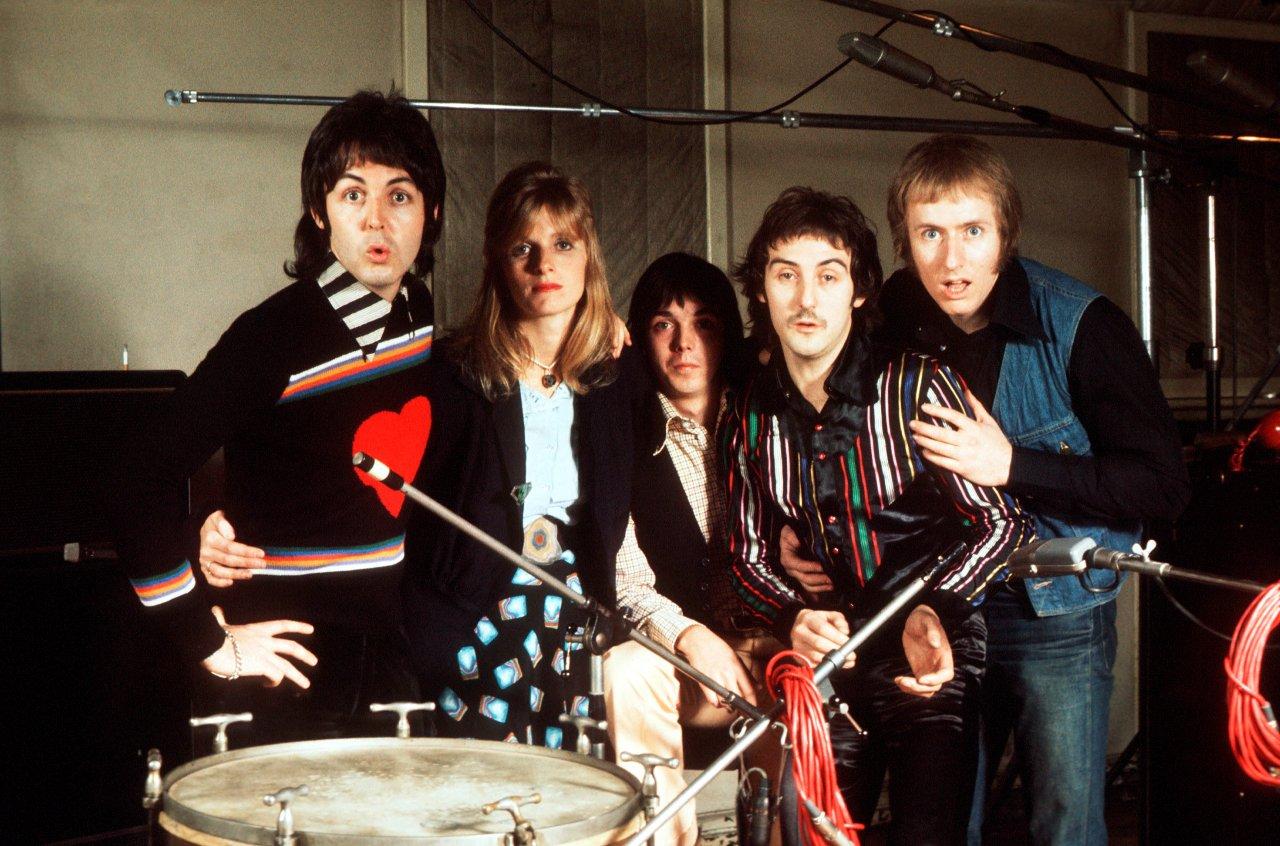
Photo: Michael Putland/Getty Images
list
Wings Release 'One Hand Clapping': How To Get Into Paul McCartney's Legendary Post-Beatles Band
After 50 years on the shelf, Wings' raw and intimate live-in-the-studio album is finally here. Use it as a springboard to discover Paul McCartney's '70s band's entire catalog — here's a roadmap through it all.
Whether it be "Band on the Run" or "Jet" or "My Love," chances are you've heard a Wings song at least once — in all their polished, '70s-arena-sized glory. More than four decades after they disbanded in 1981, we're getting a helping of raw, uncut Wings.
Last February, Wings' classic 1973 album Band on the Run got the 50th anniversary treatment, with a disc of "underdubbed" remixes, allowing Paul McCartney, spouse and keyboardist Linda McCartney, and guitarist Denny Laine to be heard stripped back, with added clarity.
After a few months to digest that, it was time to reveal a session that, for ages, fans had been clamoring for. On June 14, in came One Hand Clapping, a live-in-the-studio set from August 1974 that captured Wings at the zenith of their powers.
Back then, Wings had the wind in their sails, with a reconstituted lineup Band on the Run at the top of the charts. They opted to plug in at Abbey Road Studios with cameras rolling, and record a live studio album with an attendant documentary. The film wouldn’t come out until a 2010 reissue of Band on the Run; the music’s popped up on bootlegs, but had never been released in full.
That long absence is a shame; while One Hand Clapping is a bit of a historical footnote, it absolutely rips; Giles Martin shining up the mixes certainly helped. Epochal Macca ballads, like "Maybe I'm Amazed" and "Blackbird," are well represented, but when Wings rock out, as on "Jet," "Nineteen Hundred and Eighty Five," and "deep cut "Soily," they tear the roof off.
Basically, in range and sequencing, One Hand Clapping shows McCartney prepping Wings like a rocket; soon, it'd rip through the live circuit. If you've never taken a spin through McCartney's post-Fabs discography, though, you may not know where to go from here.
So, for neophytes (or just fans wanting a refresher), here's a framework through which to sift through the Wings discography — with One Hand Clapping still ringing in your ears.
The Essentials
Remember, as you get into Wings: don't cordon off their catalog from McCartney's solo work as a whole. In other words: if you haven't heard masterpieces like 1971's Ram yet, don't go scrounging through Back to the Egg deep cuts yet: check all that stuff out, then return to this list.
That being established: the proper Wings entryway is almost unquestionably Band on the Run. Like Sgt. Pepper's and Abbey Road before it, it's an exhilarating melodic and stylistic rush, a sonic adventure — whether you go for the original or the "underdubbed" version.
In the grand scheme of solo Beatles, Band on the Run is also the one McCartney album that slugs it out with John Lennon's Plastic Ono Band and George Harrison's All Things Must Pass, in terms of artistic realization.
That being said: despite slightly inferior contemporaneous reviews, its follow-up, 1975's Venus and Mars, is almost as good — and if grandiosity isn't your bag, you might actually enjoy it more than Band on the Run. (Think of Harrison following up All Things with the sparser, more spacious Living in the Material World, and you'll get the picture.)
Between those two albums, you've got a wealth of indispensable Macca songs — "Jet," "Let Me Roll It," "Nineteen Hundred and Eighty Five," "Rock Show," "You Gave Me the Answer" — as well as satisfying deep cuts, like doomed Wingsman Jimmy McCulloch's "Medicine Jar."
From there, it's time to understand Weird Wings — which rewinds the clock to their beginnings.
The Weirdness
As the McCartney canon goes, Ram's stock seems to shoot up every year, single handedly inspiring new generations of psych-pop weirdos. By comparison, Wings' debut, Wild Life, was critically savaged in 1971, and its reputation isn't much better today.
As you'll learn so often in your solo Macca voyage — you've just got to ignore the critics sometimes. Even McCartney himself said "Bip Bop" "just goes nowhere" and "I cringe every time I hear it." What he leaves out it's a maddening earworm — to hear this loony, circuitous little sketch once is to carry it to your deathbed.
Indeed, Wild Life is full of moments that will stick with you. In the title track, McCartney screams about the zoo like his hair's on fire; "I Am Your Singer" is a swaying dialogue between Paul and Linda; "Dear Friend" is one of McCartney's most moving songs about Lennon.
Wild Life's follow-up, Red Rose Speedway, is a little more candy-coated and commercial — but outside of the polarizing hit "My Love," it has some integral McCartney tunes, like "Little Lamb Dragonfly" and "Single Pigeon."
In the end, though, Wild Life is arguably the early Wings offering that will really stick to your ribs. It's not a crummy follow-up to Ram, but an intriguing off-ramp from its harebrained universe — and as the opening statement from McCartney's post-Beatles vehicle, worth investigating just on that merit.
The Deep Cuts
McCartney has always been a hit-or-miss solo artist by design — digging through the half-written pastiches and questionable experiments is part of the deal.
1976's Wings at the Speed of Sound features a key track in the irrepressibly jaunty "Let 'Em In," and an (in)famous disco-spangled hit in "Silly Love Songs." From there, with tunes like "Cook of the House" and "Warm and Beautiful," your mileage may vary wildly.
The ratio holds for 1978's London Town: you could put the gorgeous "I'm Carrying" on your playlist and scrap the rest, or you can go spelunking. And McCartney being McCartney, despite 1979's Back to the Egg being choppy waters, he nailed it at least once — on the lithe, sophisticated, Stevie Wonder-like "Arrow Through Me."
Today, at 81, McCartney is an 18-time GRAMMY winner and an enormous concert draw — charging through his six-decade catalog in stadiums the world over. These albums only comprise one decade in his history, where he flourished as a mulleted stadium act alongside his keyboarding wife. But his catalog would be so much different if he never got his Wings.
5 Lesser Known Facts About The Beatles' Let It Be Era: Watch The Restored 1970 Film
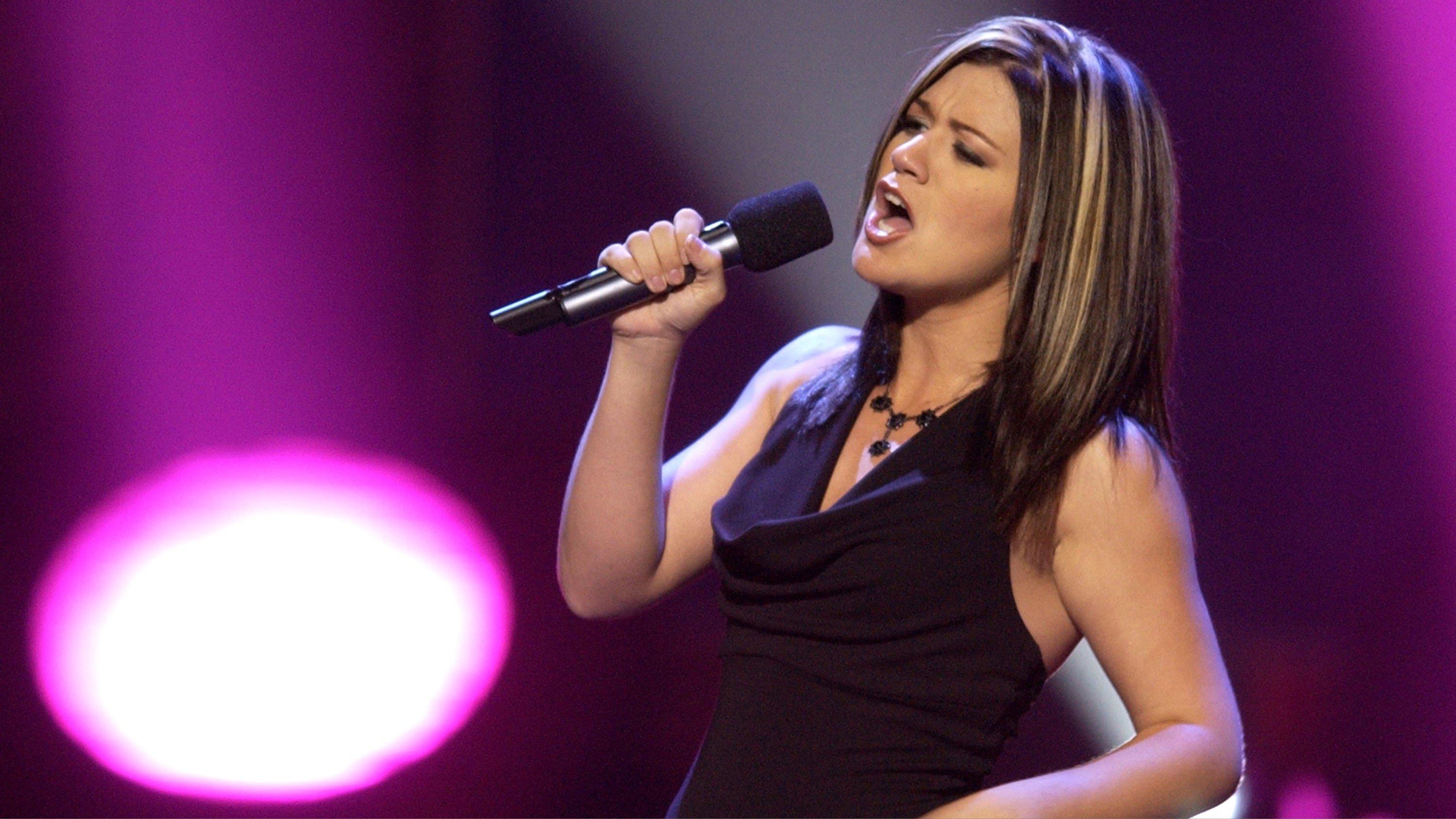
Photo: Steve Granitz / GettyImages
news
On This Day In Music: "American Idol" Premieres On Fox Network
For decades, "American Idol" has been instrumental in discovering some of music’s biggest names and pioneering the reality TV contest genre. As the show enters its 22nd run, here’s a look at how it has become an iconic household staple across the country.
For countless Americans, "American Idol" is intertwined with core memories as a show that had families eagerly glued to their TVs twice a week. It brought generations together, creating moments of both suspense and excitement that are still remembered today, as the show continues to run in its 22nd season.
Created by visionary entrepreneur Simon Fuller, "American Idol" premiered on June 11, 2002, as a fresh spin-off of the British program "Pop Idol." It revolutionized how Americans engaged with reality TV through its interactive, viewer-driven voting system, which encouraged audience participation in the success of their favorite contestants. The show also offered viewers a glimpse into contestants' candid backstories and personal journeys, anchoring emotional investment and skyrocketing the show's popularity.
The show's debut season featured a dynamic trio of judges: singer Paula Abdul, TV personality Simon Cowell, and producer Randy Jackson. Their contrasting personalities brewed a chemistry as captivating as the hopeful performances. Abdul’s warmth, Cowell's blunt wit, and Jackson’s humor added extra layers of entertainment, making the twice a week broadcasts a must-watch.
The first season of "American Idol" also unforgettably introduced the country to Kelly Clarkson. Since her debut — with a heart-tugging backstory about being the average girl-next-door with big dreams — Clarkson has gone on to tour the world, host her own TV talk show, and secured her spot as one of music’s most beloved talents.
"I had dreams since I was a little girl that I wanted to be on the GRAMMYs, or some award show and sing on there," Clarkson mentioned in her pre-audition interview. Flash forward 22 years, the pop singer has accumulated 17 GRAMMY nominations and three wins, propelled by a powerful vocal gift.
Other artists who launched their careers from the show's platform include Jordin Sparks, Carrie Underwood, Adam Lambert, and Jennifer Hudson, who each serve as testament to the show’s impact in music.
"American Idol" has not only opened our eyes to some of our favorite musicians, but it also has given us some of our favorite pop culture moments.
A video that frequently resurfaces on social media captures a memorable moment between Katy Perry and contestant Noah Davis, where they bond over the slang term 'wig'.
"No, it’s not your language. It’s just for us," Perry joked to her fellow judges, Lionel Richie and Luke Bryan, when they questioned the term’s meaning.
After two decades on air, "American Idol" has etched a lasting legacy in pop culture. It has paved the way for other reality TV music shows and created lasting memories for music fans along the way.
“The show transcends age, gender, ethnicity, everything,” Underwood told Billboard in 2005.
Explore More History-Making Moments In Music
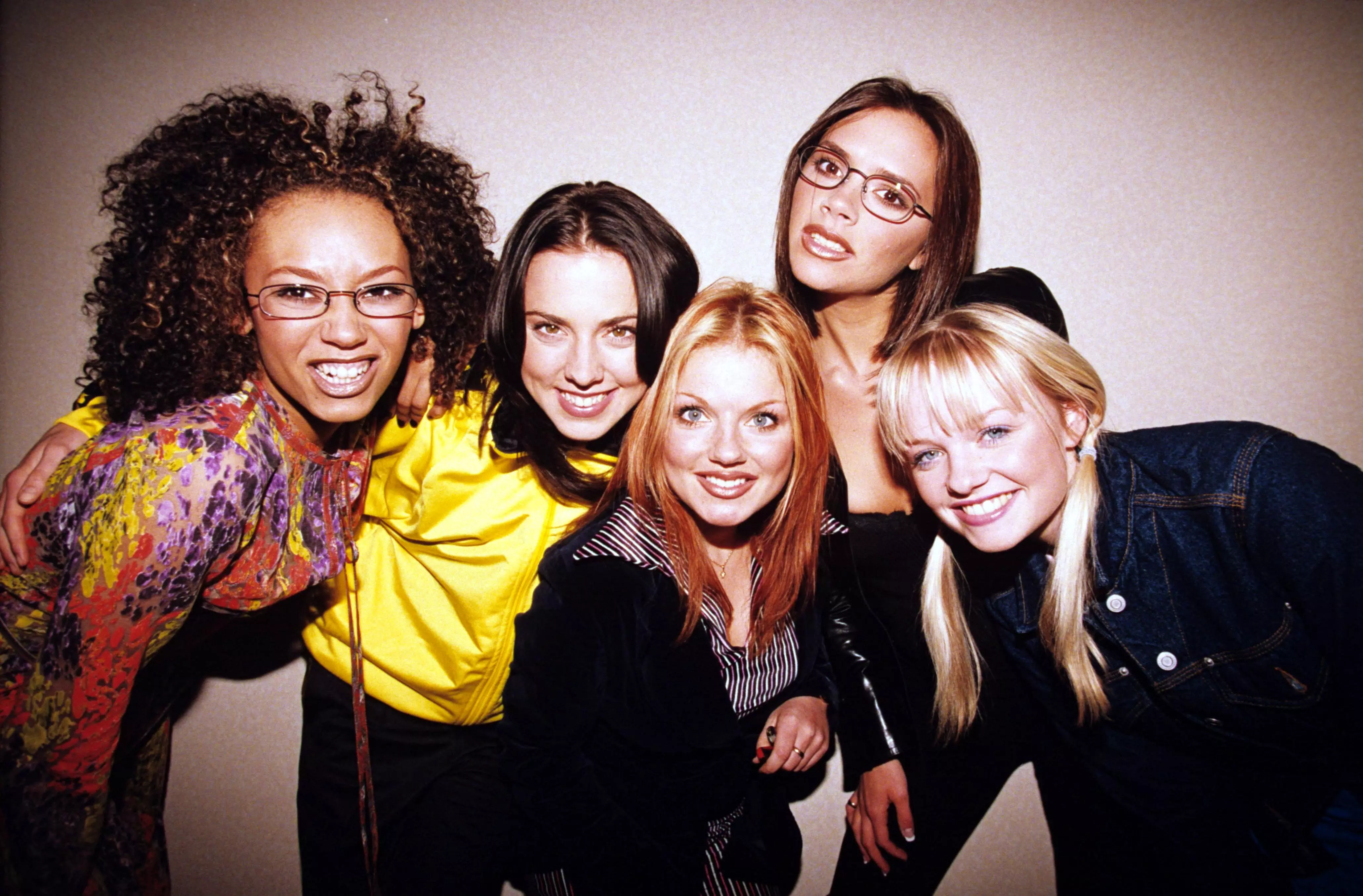
On This Day In Music: Spice Girls Release "Wannabe," Their Iconic Debut Single
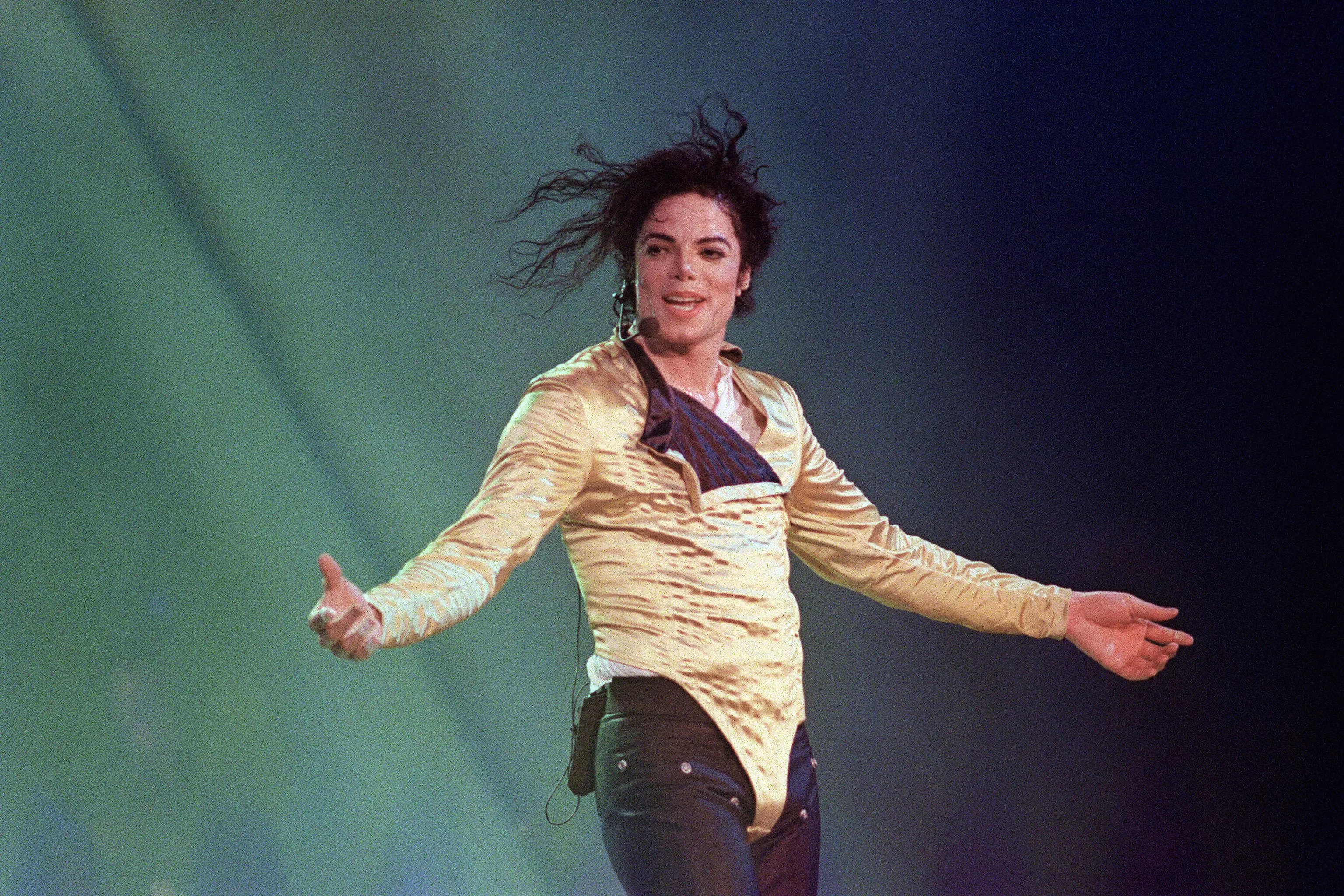
On This Day In Music: Michael Jackson Passes Away In Los Angeles At Age 50

On This Day In Music: Mariah Carey Releases Her Self-Titled Debut Album
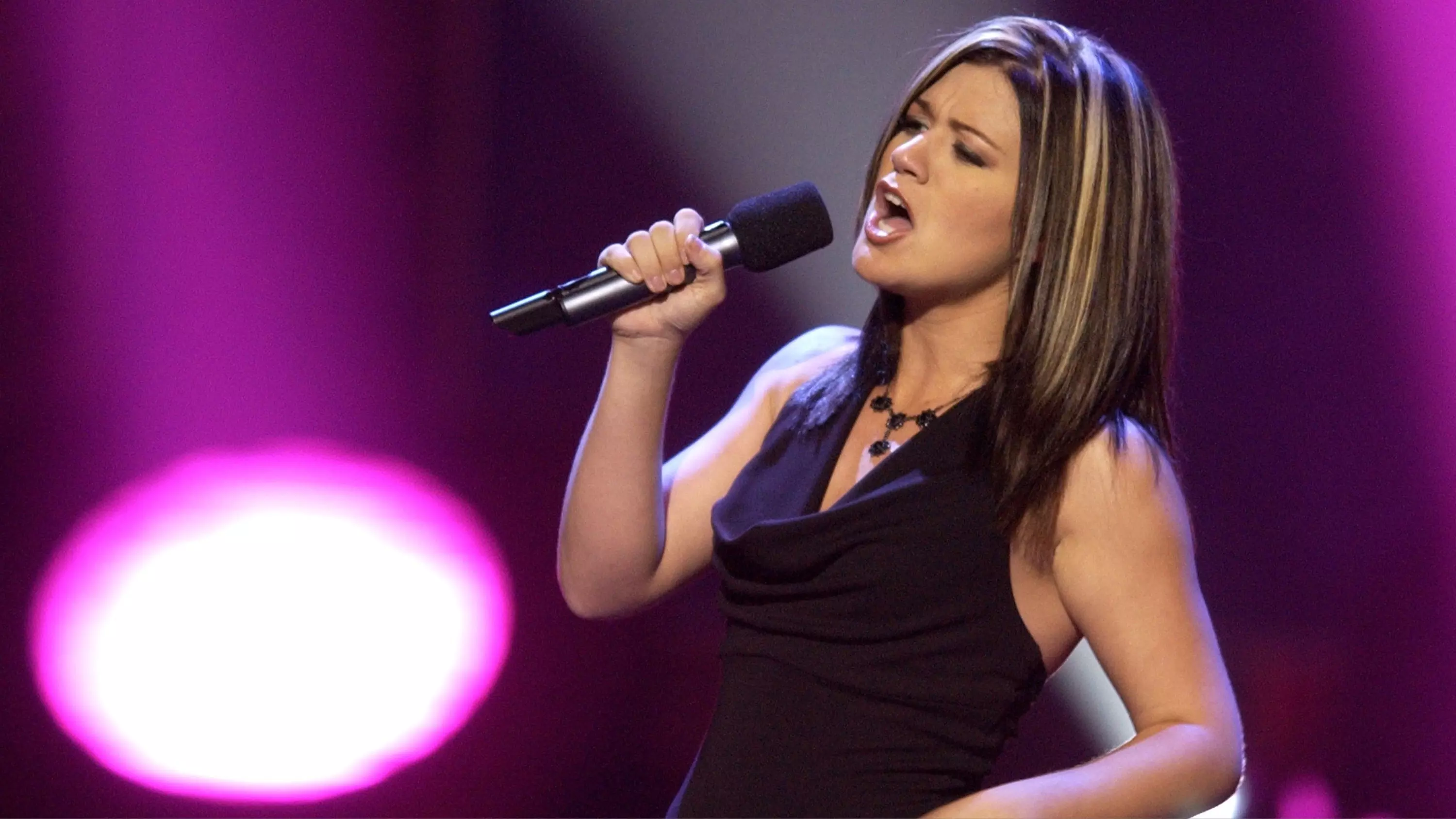
On This Day In Music: "American Idol" Premieres On Fox Network
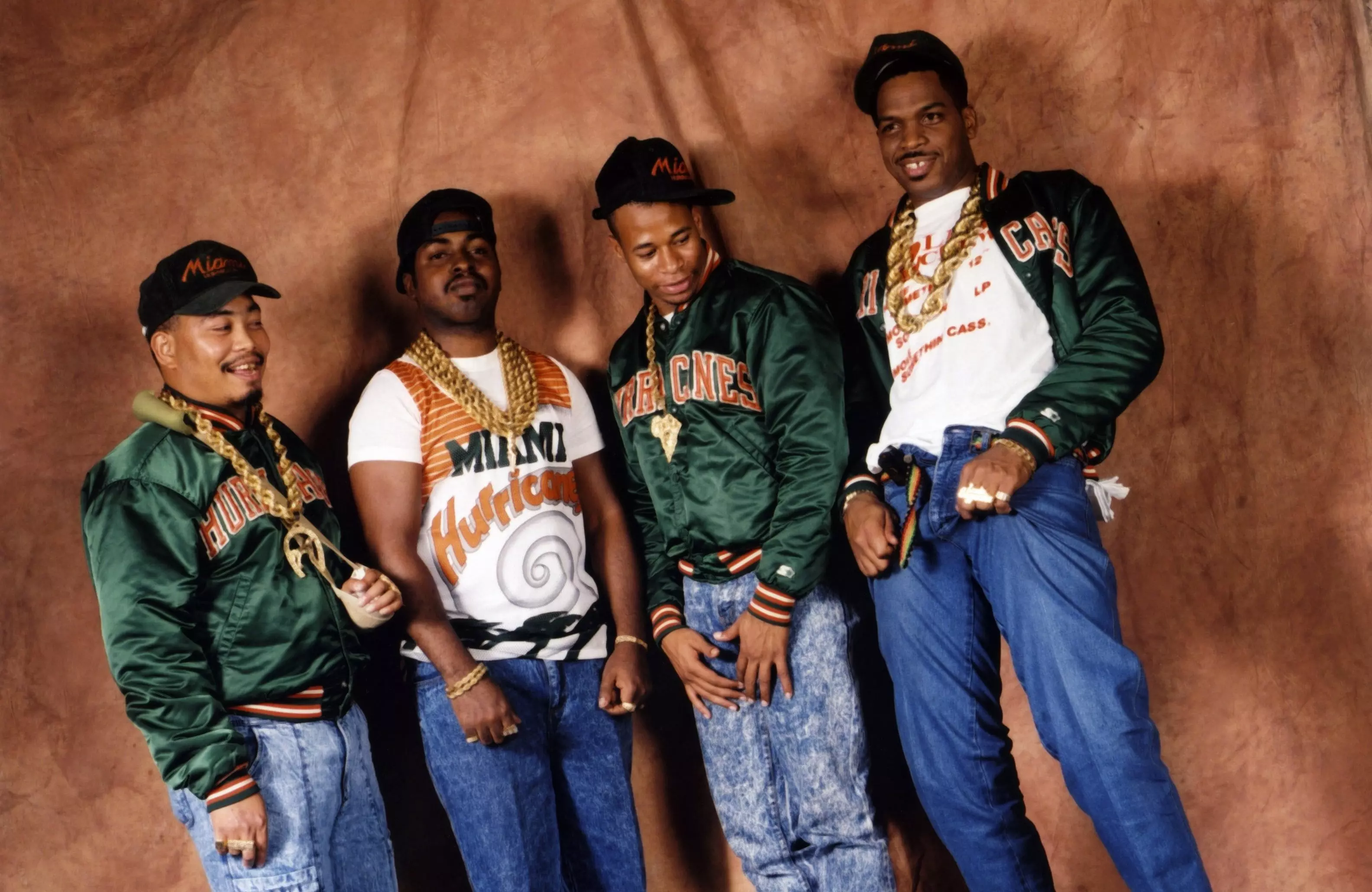
On This Day In Music: 2 Live Crew's 'As Nasty As They Wanna Be' Becomes First Album Declared Legally Obscene, Anticipates First Amendment Cases
